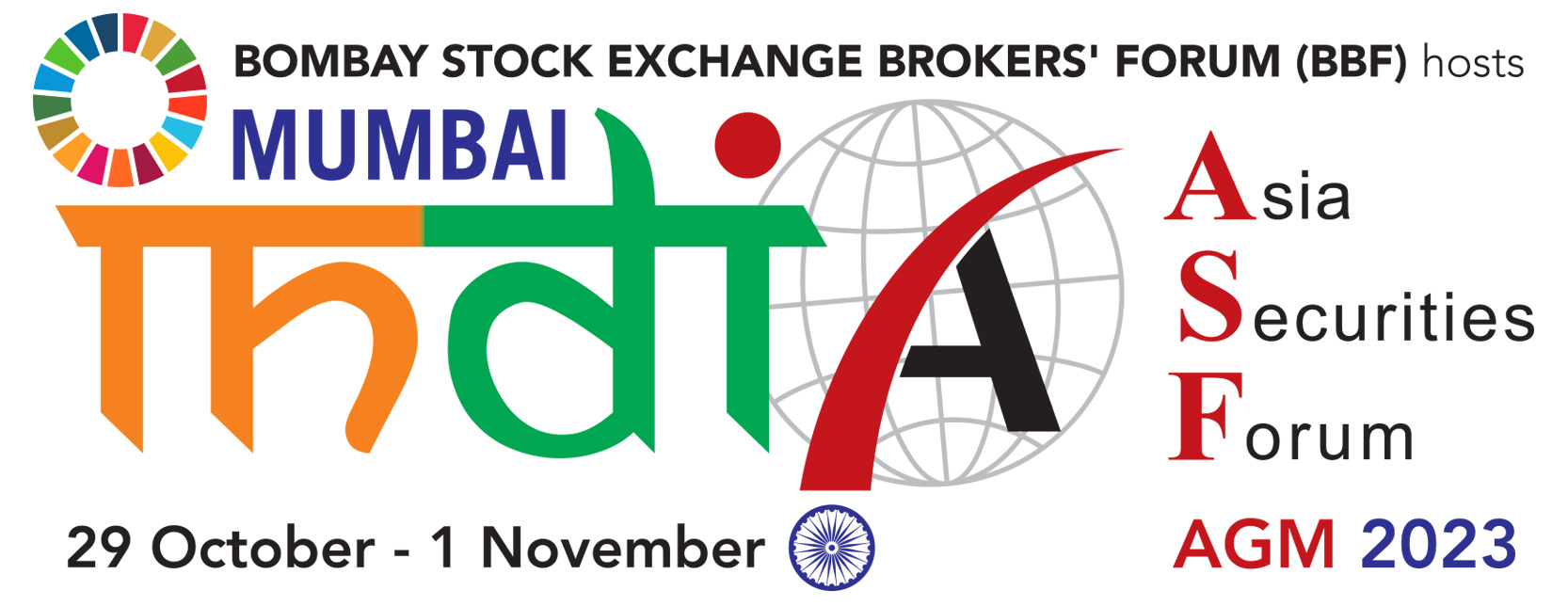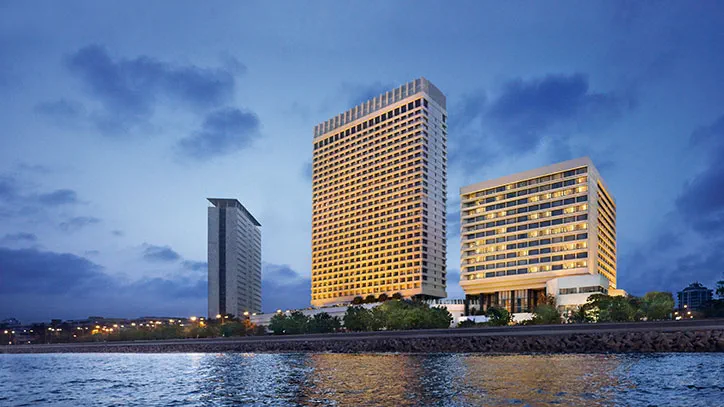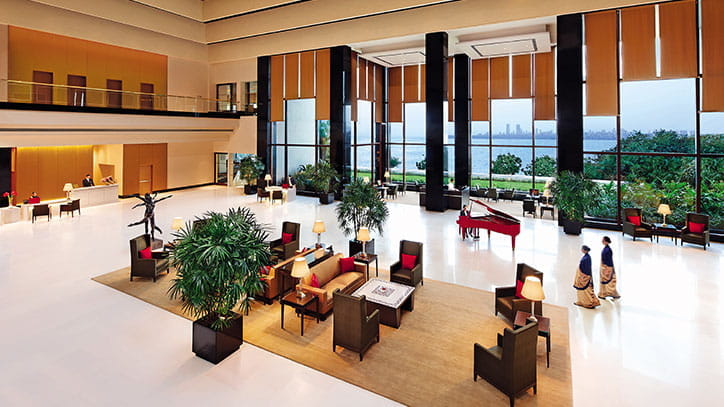About The Event
The 28th Asia Securities Forum (ASF) Annual General Meeting 2023
Where
Mumbai, India
When
29-1 October-November, 2023
Chairman's message
Greetings from the Bombay Stock Exchange Brokers’ Forum (BBF) | India
I would like to welcome you to MUMBAI, India from all over the world to the 28th ASF AGM from Sunday, 29 October to Wednesday, 1 November 2023.
There is a popular saying in India, in Sanskrit “Atithi Devo Bhava” | in English "The guest is God", prescribes dynamic of the host–guest relationship. We at BBF shall do our utmost to extend the best possible hospitality and make this event a memorable one.
India is a diverse country with rich heritage and culture is exceptionally phenomenal with varied traditions, each different in almost every state.
We are excited to host you in Mumbai the financial, commercial, and the entertainment capital of India. It is also one of the world's top ten centres of commerce in terms of global financial flow, generating 6.16% of India's GDP, and accounting for 25% of industrial output, 70% of maritime trade in India (Mumbai Port Trust and JNPT), and 70% of capital transactions to India's economy. The city houses important financial institutions and the corporate headquarters of numerous Indian companies and multinational corporations. It is also home to some of India's premier scientific and nuclear institutes. The city is also home to Bollywood and Marathi cinema industries. Mumbai's business opportunities attract migrants from all over India. Pre and Post Convention tours have been planned for all of you.
Secretariat will be eager to assist you to make your trip a lifetime experience.
Kind regards,
Kishor Kansagra
Chairman
Bombay Stock Exchange Brokers’ Forum (BBF)
Click here to know more about BBF Governing Board
Explore the Vision behind the BBF ASF AGM 2023 Logo
BBF ASF AGM Core Team
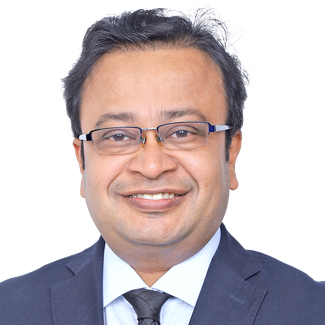
Anurag Bansal
International Affairs Division, BBF
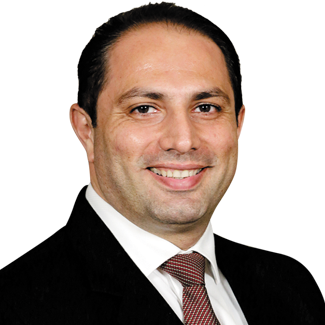
Vispi Bhathena
Chief Executive Officer
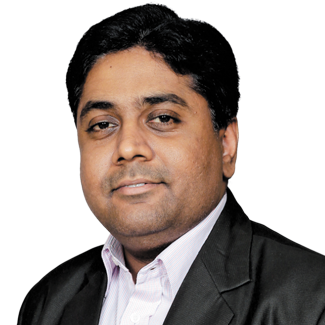
Aditya Srinivas
Chief Operating Officer and Chief Economist
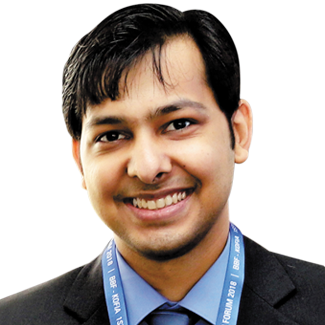
Ujwal Damani
Associate Director | International Affairs
Program Schedule
Meet & Greet at the Hotel Foyer
Pre-Conference Tour
Lunch Break
ASF Pre-Meeting
ASF Study Group on Transition Finance
Welcome Dinner | Cocktails & Conversations
Registration
Inaugural Session - Opening Remarks and Keynote Speeches
Photo Session (Formal)
Plenary Session A: Decarbonization through transition finance and green-tech ― How capital markets contribute (Associations TBD)
Plenary Session B: Digitalisation and Innovation in Capital Markets (Associations TBD)
Lunch Break
Market Reports Session 1 (Associations TBD)
Gala Dinner | Cocktails & Conversations
Market Reports Session 2 (Associations TBD)
Plenary Session C: Regulation and Financial Market Integrity (Associations TBD)
Lunch Break
Address by Economist
Speech by JSDA, Introduction by ASF 2024 Host
Closing Remarks by ASF 2023 Host BBF
Refreshment Break
ICSA Mid-Year Meeting
Farewell Dinner | Cocktails & Conversations
Meet & Greet at the Hotel foyer
Meeting and Walk & Talk Tour at the BSE Ltd. Visit to the BSE International Convention Hall Heritage Walk to the Banyan Tree, and nearby area
Luncheon at National Stock Exchange of India Limited (NSE)
Visit to the Securities and Exchange Board of India (SEBI)
Hotel
The Oberoi, Mumbai
Nariman Point, Mumbai - 400 021, India. https://www.oberoihotels.com/hotels-in-mumbai/
Preferential tariff for our guestsThe hotel would be able to extend the proposed rates up to 11th August 2023. Post that, the room rates extended are subject to change
ROOM BOOKINGS
The room bookings may be made directly with the hotel’s group coordinator by filling in the following form:
Email: jeraz.tamboowalla@oberoigroup.com
Cell no.: +91 98334 03069, Landline: +91 22 6632 6502
Email: GroupCo-ordinator.Mumbai@oberoihotels.com
Information
-
Visa Information
Foreign visitors may need a Visa to India.
For visa application and further visa information please click the link https://indianvisaonline.gov.in/evisa/tvoa.html
The visas are issued electronically (e-Visa) or can be obtained from the Indian missions abroad through application. E-Visa is available in many countries of Europe, and US and Australia etc.
Note: Letter of Invitation
Personal letter of invitation will be sent by the BBF Secretariat upon request to facilitate obtaining of visa. Delegates are requested to share the following details on vispi.bhathena@brokersforumofindia.com for the needful.
Full Name (As per passport):
Designation/Job Title:
Organization Name:
City:
Country:
Passport number:
Passport issue date:
Passport expiry date:
Number of days of stay in India:
-
Currency Information
Currency of India (INR- Indian Rupee):
Indian rupee is the national currency of India. The notes are in denomination of Rs. 10, Rs. 20, Rs. 50, Rs. 100, Rs. 200, Rs. 500, Rs. 2,000. The coins are in denominations of Rs. 1, Rs. 2, Rs. 5, and Rs. 10.
You can exchange foreign currency cash at currency exchange offices and banks.
Most credit cards like Visa, Mastercard, American express are acceptable at Hotels and restaurants and systematic shops & marts.
We advise to carry cash in hand (local currency- Indian Rupee) in order to make purchases at the local markets and the main bazaars.
Credit Card/ ATM / Cash:
In cities you can change most major foreign currencies and brands of travellers' cheques, but you'll widen your options and save yourself from hassles if you stick to US Dollars or Pounds Sterling.
Credit Cards are widely accepted in all major shops and restaurants; however, it may not be accepted in small shops so it is
recommended to carry some cash as well.
ATM machines are available in the cities; it may not be available in small towns and villages. Always have enough cash with you while travelling.
-
Other Information
Climate in October - November:
November to March is the perfect time to visit India. November in Mumbai is relatively cool.
Daily high temperatures decrease by 2°F, from 33.3 degree Celcius (92°F) to 32.2 degree Celsius (90°F), rarely falling below 30 degree Celsius (86°F) or exceeding 35.5 degree Celsius (96°F).
Daily low temperatures decrease by 4°F, from 23.8 degree Celcius (75°F) to 21.6 degree Celcius (71°F), rarely falling below 18.3 degree Celcius (65°F) or exceeding 26.7 degree Celcius (80°F).
For more weather details, please refer to the link below:
Source Courtesy: https://weatherspark.com/m/107286/11/Average-Weather-in-November-in-Mumbai-India
Smoking:
Smoking in public places is banned all over the country. The minimum age of buying tobacco products is 18 years or more.
There are designated smoking zones in hotels, restaurants, pubs, airport lounges, cafes’, etc.
For more details on law regarding Smoking in India please refer to the link below:
Source Courtesy: https://www.tobaccocontrollaws.org/legislation/country/india/summary
Tipping:
On bills ranging from INR 300 to INR 1000, you can tip around 7% to 10% of the bill amount. For example, a tip of INR 100 on an INR 1000 bill is a very good tip. You can also tip about INR 70 and that would be fine. On bill amounts above INR 1000, a tip of 5% to 7% is sufficient.
Restaurants now often include a ‘service charge’, not to be confused with ‘service tax’ (which is a government-levied tax). No tip is expected if this type of charge is levied. It’s normally capped at 10%.
Moreover, tipping can be skipped if not satisfied with the service provided.
Source Courtesy: https://indiasomeday.com/en/tipping-in-india/
Tax:
GST is charged on most goods and services in India under five slabs i.e. 0%, 5%, 12%, 18% and 28% + service charges on few services. Goods like petroleum and precious stones have different taxation policy and are not considered under GST slabs.
For further details on Taxation System in India please visit the link below:
Source Courtesy: http://www.gstcouncil.gov.in
Electricity:
India uses 230 Volts, 50 Hz alternating current as the power source. Plugs and sockets have either grounded/earthed 3 Pin connection (type D) or ungrounded 2 pin connections (type C).
The Two pin plug is also called the Europlug. It has two round 4 mm (0.157 in) pins it can be inserted either way into the socket. Hence there is no fixed live (hot) and neutral (cold) terminals.
The three-pin plug is rated at 6A/250V. It has three round pins in a triangular pattern. The earth terminal is slightly larger than the live and neutral terminals.
Source Courtesy: https://www.indiaquickfacts.com/content/india-electricity-electrical-plugs-converters-electric-sockets-electric-adapters
Emergency calls:
Ambulance – 102
Police – 100
Fire Brigade – 101
Time Zone:
India has one time zone which covers the entire country. Indian Standard Time (IST) is 5 hours and 30 minutes ahead of GMT.
Time difference between India and other Countries:
United states (NYC)
-9 hours 30 minutes
United Kingdom
-5 hours 30 minutes
Japan
+3 hours 30 minutes
China
+2 hours 30minutes
Middle East Asia
-1 hour 30 minutes
South East Asia
+1 hour 30 minutes
Australia
+4 hour 30 minutes
New Zealand
+7 hours 30 minutes
Telecommunication:
All over India, phone numbers consist of two sections; area code (3-digits) and the number itself (10-digit)
To call within the city dial 10-digit number
Inter-city calls [0 + area code + number]
International calls 0 + 0 + country code + area code + number
Mumbai (area code): 22
India (country code): +91
Language:
Though Hindi is the national language of India, English is very commonly spoken and understood in urban parts and cities in India. One can speak in English to remove the communication barrier.
Few Hindi words for ease in communication:
Greetings
Hindi - Translation
Hindi - Pronunciations
Hello
Namaste
Na-mas-tey
How are you?
Kaise hai aap
Kai-say hai aap
Good Night
Shubh Ratri
Shoo-bha-Raat-ree
Yes
Haa
Haa
No
Nahi
Na-hee
What?
Kya
Kyaa
Thank you
Shukriya
Shook-Ri-ya
Excuse me
Maaf keejiye
Maaf- Ki-ji-yeh
How much?
Kitna
Kith-naa
Okay
Theek hai
Theek-Hai
Very well
Bohot accha
Baw-haw-th
Who?
Kaun
Kawn
When
Kab
Kabh
How
Kaise
Kay-se
Hot/cold
Garam/Thanda
Ga-ram/Than-dah
Near/far
Pass/dur
Paas/dur
Water
Pani
Paa-ni
Food
Khana
Khaa-naa
Hotel
Hotel
Hotel
Taxi/Cab
Taxi
Taxi
I don’t understand
Mujhe samajh nahi aa raha
Muh-jhe- samajh- Na-hee-aa-raahaa-
I don’t know
Mujhe nahi pata
Muh-jhe Na-hee Pa-taa
Good/Bad
Accha/Bura
Acch-haa/Boo-Raa
Travel/Tourist Information and Guide:
The city provides various modes of transportation for Commuters which are as follows:
Online Cab Services in Mumbai:
Online cab services are one of the most common modes of transportation to travel across the city.
-
Uber
-
Ola
All the online cabs can be booked and reserved through their online mobile application
Safety & Security:
Follow the same rules of safety that you follow while travelling anywhere else. Use the hotel safe deposit boxes and keep travel
documents safe. Make sure to keep extra photocopies of the pages of your passport.
Insurance & Liability:
The Organizers are not responsible for any individual's travel, medical, or personal insurance. It is advised to secure your own insurance policies before departure from their countries.
While every attempt is made to ensure efficient, trouble-free hospitality, including hotel accommodation, sightseeing and tours, participants are advised that no liability accrues to the Organizers in the event of any necessary modifications, including change initineraries for tours due to delays or cancellations of flights/other exigencies beyond the Organizers' control.
Food & Drink:
Please note that drinking from tap is unsafe in India, drink only bottled water. Most hotels and restaurants provide filtered/RO water which is safe to drink, however we recommend you stick to bottled water only.
We recommend you to eat from hotels and restaurants that maintain good hygiene. Make sure to steer clear of uncooked or unpeeled fruits and vegetables that are served outside in the streets.
Restrictions on Export of Articles:
Illegal transport of wild animal indigenous to the country like goods made of animal skin is banned.
Peacock feathers and handicrafts made from them are not banned.
Antiques items of historical interest which have been in existence for not less than 100 years are not allowed to be exported
from India.
Aesthetic and non-artistic value not less than seventy-five years, historical itinerary and manuscripts and other documents art
treasures is not allowed to be exported out of India.
Source Courtesy: https://dgft.gov.in/
-
